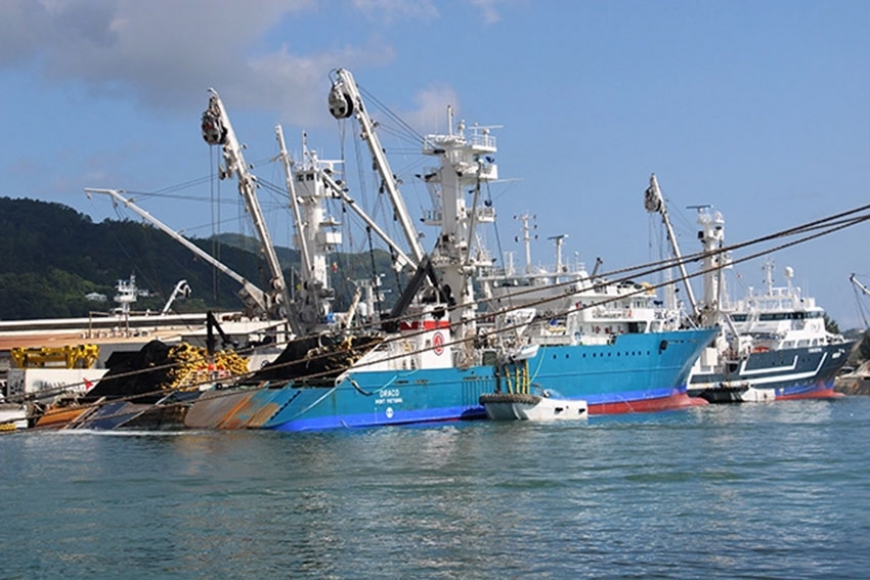The Indian Ocean yellowfin tuna stock is teetering on the verge of collapse and some experts say the EU, which has profited the most from the fishery over decades, should do more to save it.
EU-controlled ships, including those flagged to smaller coastal states like Seychelles, haul in the lion’s share of Indian Ocean tuna, supplying a market worth billions of dollars.
Overfishing by these vessels, and the EU’s less-than-ambitious proposal to restore the yellowfin stock, has led to allegations of a “neo-colonial” plunder of resources that many developing nations depend on.
This is the first story in a two-part series about the effect European tuna fishing has on the economy and marine environment of Seychelles, an archipelagic nation in the Indian Ocean.
Until Jan 9, 2014, the Playa de Anzoras, a 2,200-ton tuna fishing vessel named for a beach in Spain, built in Spain and owned by Spaniards, sailed under the Spanish flag. On Jan. 10, it dropped the Spanish flag in favor of that of Seychelles, a small archipelagic nation in the Indian Ocean.
Neither Spain nor continental Europe share a coast with the Indian Ocean, where Playa de Anzoras operates. Yet the European Union dominates tuna fisheries here and profits the most from it. This dominance is, in part, explained by ships like the Playa de Anzoras, which is flagged to Seychelles but ultimately controlled by European companies, according to records reviewed by Mongabay.
EU-controlled ships have pulled in the lion’s share of the region’s valuable yellowfin tuna (Thunnus albacares) for more than three decades. Now, the stock is teetering on the verge of collapse. A plan to stop overfishing and restore it has failed.
This March, talks on the issue ended in a stalemate. The EU wants other members of the Indian Ocean Tuna Commission (IOTC), the intergovernmental agency charged with managing tuna fisheries in the region, to be subject to greater restrictions, while some observers point to the EU’s own failure to play by the rules and save a stock that it profits so greatly from.
The Indian Ocean is ringed by developing countries, many of which have only in the last century gained independence from European colonial rule. Some see EU states’ grip over resources like tuna as the persistence of an exploitative relationship.
“The attitude of the EU is hypocritical and neo-colonial,” Nirmal Shah, chief executive of the nonprofit Nature Seychelles and former head of the Seychelles Fishing Authority (SFA), told Mongabay. “You have some of the richest countries in the world overfishing and they are blaming poorer countries.”

